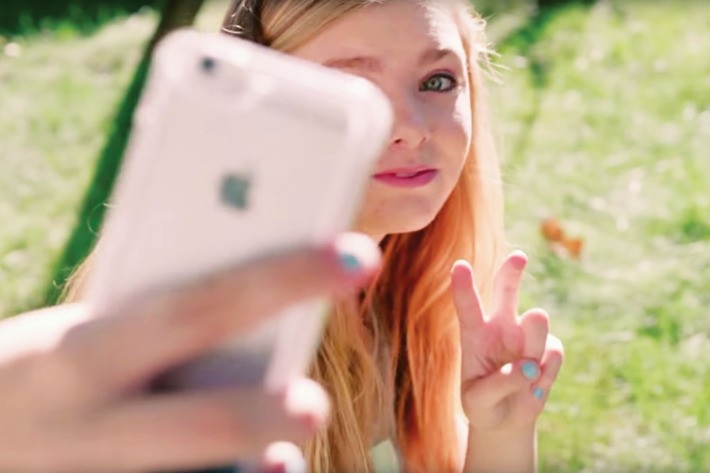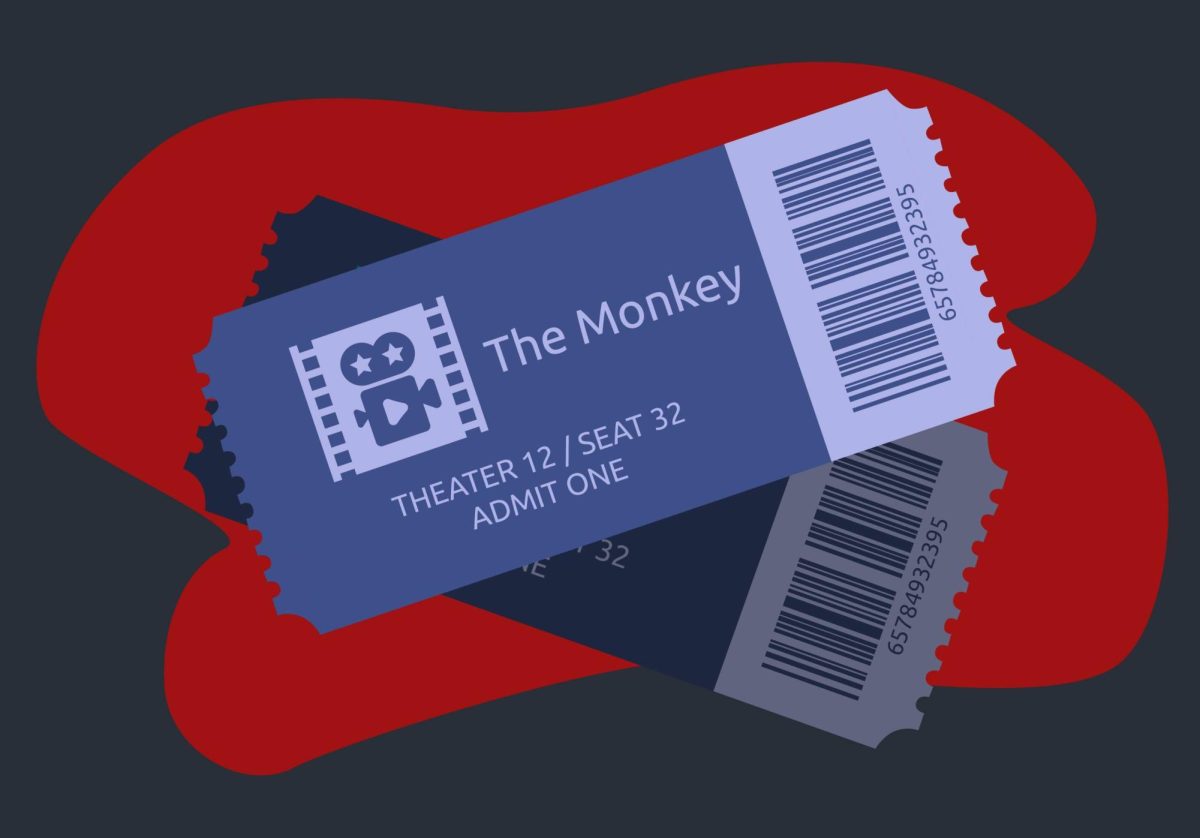“Eighth Grade”
In an A24 newsletter, comedian Bo Burnham urges viewers to see his directorial debut, “Eighth Grade,” in theaters.
“We believe that this girl and her story deserve to be projected 20 feet tall. Her story is not small to her,” he writes.
Like middle school itself, “Eighth Grade” is filled with the monumental and the mundane. The film is set in the waning days of junior high — the threat of high school is there, but still months away.
At her eighth grade class’s final assembly, Kayla (Elsie Fisher) is voted “most shy” in her class. Online, however, she shares tips and tricks for being a cool, confident teenager on her YouTube channel, each video punctuated by her signature “Gucci!” sign-off. After following a makeup tutorial, she posts a filtered “I woke up like this” picture to her Snapchat story.
If high school movies are supposed to be nostalgic — a memory of the glory days — a movie about middle school is probably one of the most painful viewing experiences you can have.
It’s funny, but not always comfortable to watch Kayla navigate the choppy waters of middle school. Fisher’s performance is heartwarming, but as frequently as you want to give her a hug you want to scold her for her familiar angst and eye rolls.
For most of the film, Kayla’s perspective — from her angst toward her father to her yearning to be liked — guides what we understand about her life. It isn’t until later in the film, for example, that we learn that Kayla’s mother left when she was young.
Her father’s heartfelt performance, executed wonderfully by Josh Hamilton, is impossible to ignore. His final conversation with Kayla around a fire is entirely tear-worthy.
If the film feels at all sparse or unrealized, it’s only because of Kayla’s self-absorption, which is entirely natural for her age and necessary for her own personal discovery. Her social anxiety, for example, is never directly called what it is: a painful feeling that she can’t escape.
No matter how grown up she’s trying to be at 13 years old, Kayla doesn’t understand it all. So neither do we.
As the film guides us through Kayla’s perspective, we’re also thrown back into her cringe-worthy experiences. During a pool party that a classmate begrudgingly invites her to, the camera shakes as Kayla moves through a pool filled with swarming peers. We feel as uncomfortable as Kayla, the only eighth grade girl in a lime green one-piece.
Burnham’s grasp on this Generation Z world is evident throughout “Eighth Grade.” It’s easy to get lost in the treasure trove of hints at modern adolescent life like the slime videos Kayla watches and the “Hamilton” calendar hanging by her door.
Furthermore, in the process of capturing Kayla’s experience Burnham has constructed one of the best reflections of how young people use technology. Kayla’s phone is practically an extension of herself, her Instagram direct messages are an extension of the social world she’s awkwardly trying to navigate.
There are Vine references, like the kid who shouts “LeBron James” out during assembly. The countdown sound of Kayla’s Photo Booth filming sessions frequently serves as a transition between scenes, reflecting the pervasive integration of technology in her life.
Throughout it all, Kayla is just trying her best to connect — so is her dad and so is the high schooler that Kayla shadows. Even with the mundanity of the final days of “Eighth Grade” and the specificity of Kayla’s social media landscape, her struggles really can speak to us all.
So, Burnham is right. You should see “Eighth Grade” on the big screen. Kayla’s story is as funny and painful, as ordinary and fantastic, as big and small as real life.
Grade: A

“Mamma Mia! Here We Go Again”
Ten years since the debut of the original “Mamma Mia!” movie, the gang is back together with a storyline as perfectly-kitschy as the title. “Mamma Mia! Here We Go Again” is a riot.
First of all, it’s nearly impossible to discuss this multi-layered film without spoilers. This is your first and final warning.
The sequel, directed by OI Parker, is also a prequel in that it follows the life of Donna Sheridan (Meryl Streep) in her early years (played by Lily James). We see young Donna discover the island of Kalokairi, Greece, independence and sexual freedom.
Simultaneously, Donna’s daughter Sophie (Amanda Seyfried) is coming into her own as she navigates adulthood… and a world without her mother.
While the film eventually finds its groove, it does not start off as smooth as, let’s say, an ABBA classic.
Once again, the film opens with Sophie writing to her three potential fathers and singing a melancholy ballad.
Cut to learning that Donna has passed — of what, who knows — and we are subsequently hurled into her exciting life as a young adult with big dreams and impeccable hair.
Harry (Colin Firth), Sam (Pierce Brosnan), Bill (Stellan Skarsgard), Tanya and Rosie all return alongside their younger-looking doppelgangers to help Sophie in her latest adventure and accompany Donna throughout her younger plights.
The film runs at one hour and 54 minutes, and not a second is wasted. Seriously, you should use the restroom beforehand.
As young Donna, James is the star of the film and our hearts.
She perfectly encapsulates the wandering spirit (and libido) of a twenty-something while staying true to the character Streep first made us fall in love with.
Glittery costumes, choreographed numbers and stunning scenery aside, the film is about human connection more than anything.
From Donna and her best friends, to the camaraderie between Sophie’s three fathers, to the indescribable bond between mother and daughter, this film revolves around love.
Somehow it achieves the impossible by offering new perspectives on a story we had already come to adore. The nostalgia we felt from the first maintains.
Oh, and Cher makes an appearance (which we’re still trying to make sense of).
Grade: A-








